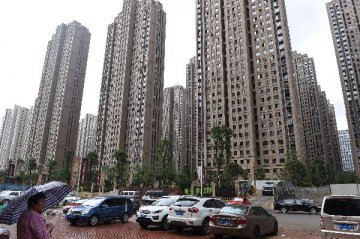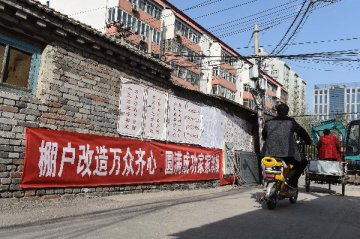
China's property market continued to show signs of cooling as prices faltered or posted slower growth in major cities amid tough government curbs.
On a yearly basis, new home prices continued to climb in 70 cities surveyed in June, but the pace of growth slowed in 15 major cities compared with the previous month, data from the National Bureau of Statistics (NBS) showed Tuesday.
Average price increases for new homes have decelerated for nine consecutive months in the four largest cities -- Beijing, Shanghai, Guangzhou and Shenzhen -- while in second-tier cities, prices have eased for seven straight months.
Prices for existing homes also posted slower annual growth in June compared with the previous month.
On a month-on-month basis, new home prices fell or remained flat in nine cities. However, new home prices in four small cities -- Bengbu, Luoyang, Beihai and Xiangyang -- registered the fastest growth, rising by up to 2.4 percent in June from May.
Ren Xingzhou, an analyst at the Development Research Center of the State Council, said the data indicated the effects of the government's firm controls were starting to pay off.
This came after Monday's data showed growth in property development investment further decelerated in the first half of the year, adding to evidence that the market boom was running out of steam.
NBS spokesperson Xing Zhihong said current property market regulation focused on easing home price surges in large cities while de-stocking supply gluts in small cities.
Rocketing housing prices, especially in major cities, had fueled concerns about asset bubbles.
Since the end of 2016, dozens of local governments have passed or expanded their restrictions on house purchases and increased the minimum downpayment required for a mortgage.
The property market boom was also cooled by relatively tightened liquidity conditions in China as the government moved to contain leverage and risk.
As China shifted its monetary policy to a prudent and neutral stance, liquidity pressure and intensified financial supervision forced financial institutions to tighten loan application reviews, rein in mortgage loans and lift mortgage interest rates.
Despite signs of cooling, analysts expect the government to continue the tight regulation in the second half of the year.
Ren Xingzhou said the government should continue the tough curbs to contain speculation while increasing land supplies and affordable housing to ensure the health of the market.
Besides these policies, China should accelerate the establishment of a long-term mechanism to stabilize the property market, said Huang Yu, deputy head of the China Index Academy, a real estate research institute.
Upbeat about the development of the sector, Huang said that the property market would remain a stabilizer in the economy as China continued its rapid urbanization.
























Latest comments